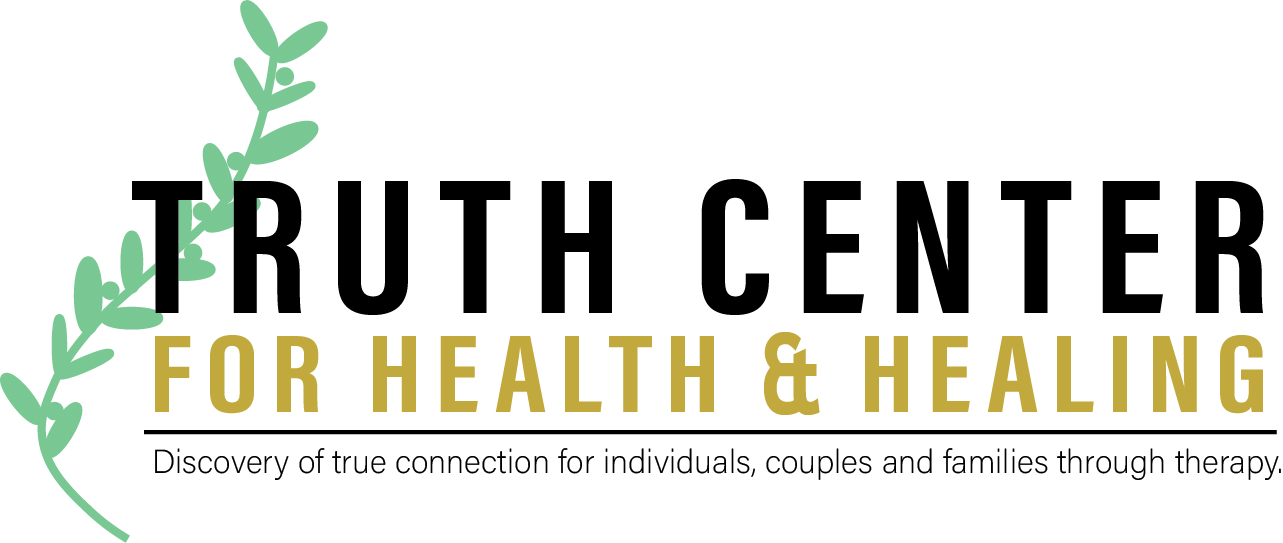Thinking about starting therapy can feel like standing at the edge of something unknown. It can be hopeful, maybe, but also a little uncertain. The world is full of voices offering advice: some encouraging, some loud with judgment, others whispering doubts that make you hesitate. It’s easy to feel caught between wanting to move forward and wondering if you even should.
However, it’s important to remember you’re not alone. As qualified professionals in the field, we understand that hesitation. We’ve seen how myths and misunderstandings can cloud what therapy truly is: a space for honesty, connection, and growth. So let’s clear the fog together. Let’s gently untangle the false stories and make room for the truth, your story and your healing.
Myth 1: Therapy Is Only for People with “Serious” Problems
Unfortunately, this is one of the most common myths that cloud perception, and it’s one that couldn’t be further from the matter. Many people are under the impression that therapy is reserved only for those in crisis or living with severe mental health conditions. The truth is, therapy is for anyone who wants to better understand themselves, manage stress, improve relationships, or simply live a more fulfilling life.
You don’t need to wait until things feel unmanageable to benefit from therapy. The countless benefits of therapy touch people from all walks of life, whether they’re individuals, couples, or entire families who are looking for support, growth, and healing. Where they are on their particular journey is what sets them apart.
It’s easy to fall into the trap of thinking, “My problems aren’t big enough for therapy,” or “Other people have it worse than I do.” However, it can be reductive and counter-productive to compare struggles. It’s about honoring your unique experience. Maybe you’re feeling burnt out at work, navigating a relationship change, or just feeling stuck in a rut. These are all perfectly valid reasons to seek support. Therapy can help you gain clarity, build resilience, and find new ways to thrive, no matter how “serious” your situation may seem.
Myth 2: Seeking Therapy Means You’re Weak
This idea comes from old-fashioned beliefs and antiquated attitudes towards personal strength and mental health. In reality, reaching out for help is a sign of courage and self-awareness, not weakness. It takes strength to be vulnerable and to face your challenges head-on. At its core, therapy is about investing in yourself and your well-being, just like seeing a doctor for a physical illness or a coach to improve at a sport. Choosing therapy means you’re taking an active step toward growth, resilience, and living authentically. It’s the strongest step you can take.
Think about how brave it is to admit you need help or to open up about your feelings. Society often praises independence and “toughing it out,” but real strength lies in knowing when to ask for support. Many of the world’s most successful and admired people have benefitted from therapy. By seeking help, you’re modeling healthy self-care for those around you and breaking the stigma for future generations.
Myth 3: Therapy Is Just Talking About Your Problems
It’s no secret that conversing with your therapist is an integral part of therapy, but it’s far from the whole story. Therapy is a collaborative process where you and your therapist work together to identify goals, develop coping skills, and create meaningful change. Modern therapists use a variety of evidence-based techniques like cognitive behavioral therapy, mindfulness, trauma-informed care, and more to tailor your experience to your unique needs. Therapy can involve learning new skills, practicing self-compassion, exploring your strengths, and finding new ways to respond to life’s challenges.
If you’ve ever imagined therapy as simply venting session after session, you might be surprised by how active and practical it can be. You’ll often leave sessions with insights, tools, or even things to try between appointments. Therapy’s about building a toolkit for life, not just rehashing the past. Many people find it empowering to discover new strategies for managing stress, communicating effectively, or setting healthy boundaries.
Myth 4: Therapists Will Tell You What to Do
Some people worry that therapy is about being judged or told how to live. In reality, therapists aren’t there to give orders or make decisions for you. Instead, they act as guides and partners in your healing process. They don’t try to control the narrative and that leaves ample room for you to drive your own healing. You’re the expert on your own life. A good therapist will help you explore your thoughts, feelings, and options, empowering you to make choices that fit your values and goals.
You might come to therapy hoping for clear answers or a step-by-step plan, but the real magic happens when you discover your own solutions. Therapists provide support, perspective, and expertise, but they respect your autonomy. They’ll ask questions, offer feedback, and help you weigh your options, but ultimately, you’re in the driver’s seat. This collaborative approach helps build confidence and lasting change.
Myth 5: Therapy Takes Years to Work
You might picture years of lying on a couch, analyzing your childhood. In truth, therapy’s as unique as you are. For some, a few sessions can lead to meaningful change. For others, longer term support is helpful. Your therapist will work with you to identify your goals and track your progress. Therapy’s complete when you feel you’ve achieved the growth you were seeking. There’s no set timeline.
Some people notice positive shifts after just a handful of sessions, especially when working on specific issues or learning new skills. Teen therapy near Philadelphia and the surrounding areas is living proof of this. Others may choose to continue therapy for ongoing personal growth, support, or maintenance. It’s perfectly normal for your needs to change over time. The pace and duration of therapy are always tailored to you, and you can discuss your preferences and expectations openly with your therapist.
Myth 6: Therapists Are Analyzing Everything You Say and Do
It’s natural to feel nervous about being “analyzed.” But it shouldn’t be forgotten that therapists aren’t there to judge or catch you out. They’re trained to listen deeply, ask thoughtful questions, and notice patterns that might be holding you back. Their goal is to help you understand yourself better, not to label or criticize. The best therapeutic relationships are built on trust, respect, and genuine care.
Like you, therapists are human, too. They’re not mind readers or detectives looking for faults. Instead, they’re compassionate professionals who want to help you feel safe and understood. If you ever feel uncomfortable or misunderstood, it’s okay to bring it up in session. Trauma therapy in Montgomery County and beyond is about open communication. It’s the key to building a trusting and supportive therapeutic relationship.
Myth 7: Therapy Is Only About the Past
While exploring your history can be helpful, especially if you’ve experienced trauma, therapy’s not just about digging up the past. Many modern therapies focus on the present and future, helping you solve current problems, build new skills, and create the life you want for yourself. A reputable therapist will make great efforts to honor your story but also help you move forward with practical tools for today and the days that lie ahead.
You might spend some time reflecting on childhood or past relationships to identify particular patterns or pain points, but much of therapy is about what’s happening in your life right now. Whether you’re struggling with anxiety or want to improve your communication at work, therapy can help you build skills and strategies for the present. You’ll learn how to respond to challenges as they arise and plan for a healthier, more fulfilling future.
Myth 8: A Therapist Must Have Lived Your Experience to Help
Due to the fact that everyone’s life experience is categorically unique, it’s common to wonder if a therapist can truly understand you if they haven’t walked in your shoes. While shared experience can help build connection, therapists are trained to listen empathically and approach your story with curiosity and respect. Their expertise lies in helping you find your own answers and strengths, not in having lived the exact same life.
Therapists work with people from all backgrounds, cultures, and walks of life. They’re skilled at creating a safe space where you can share openly, even if your experiences are different from theirs. If you have specific cultural or identity needs, it’s okay to ask your therapist about their experience or approach. The most important aspect is that you feel heard, respected, and supported.
Myth 9: Therapy Is Too Expensive and Not Worth the Investment
It’s completely valid to worry about the cost of therapy. Life comes with so many expenses, and for many people, the idea of adding something else, even something as important as mental health support, can feel overwhelming. There’s a common belief that therapy is a luxury, something reserved for people with extra time or money. On the contrary, as, at its core, therapy isn’t about indulgence. It’s about giving yourself the tools to navigate life with more clarity, peace, and strength.
The dedicated professionals at The Truth Center believe mental health support should be accessible, not out of reach. That’s why we offer flexible options like sliding scale fees, virtual sessions that save you time and travel, and help navigating insurance coverage. We understand this isn’t just about attending sessions. It’s about building a healthier relationship with yourself and the people around you, and we want to see you grow just as much as you do.
If you’re unsure about affordability, please know you’re not alone. You don’t have to figure it out by yourself. We’re here to listen, talk through your options, and help you find a path forward that fits your life. You deserve support, and we’ll do everything we can to make sure you can access it.
Myth 10: Once You Finish Therapy, You Should Never Need It Again
Life’s full of changes, and most times, new challenges will arise for those who enter and exit different stages of life. Returning to therapy later in life’s completely normal and healthy. It doesn’t mean that you failed or that your prior therapy didn’t resonate. It means that the new place you’re in requires new support. Think of it as a resource you can turn to whenever you need support, whether for a specific issue or ongoing growth.
Just as you might return to a doctor for checkups or see a coach for ongoing training, it’s okay to revisit therapy as needed. Some people come back during stressful transitions, after a loss, or when they want to work on new goals. There’s no set schedule or deadline you must meet to “graduate” from therapy. Rather, it’s always available to support your well-being, no matter where you are on your path.
Why Debunking Therapy Myths Matters
Misconceptions about therapy can keep people from getting the support they need. By shining a light on these myths, we hope to make therapy feel more accessible, welcoming, and empowering. Everyone deserves the chance to heal, grow, and live authentically.
If you’ve been considering therapy but felt held back by uncertainty or fear, know that you’re not alone. Taking the first step can feel daunting, but it’s also a powerful act of self-care. At Truth Center for Health and Healing , we’re here to walk alongside you, offering compassion, expertise, and a genuine commitment to your well-being.
The Truth About Therapy: What You Can Really Expect
Now that we’ve discussed ten myths, let’s make room for the truth. At Truth Center for Health and Healing, we believe therapy’s a safe, supportive space where you can embrace your truth and find healing. Our therapists are committed to meeting you where you are, honoring your lived experiences, and helping you become your most authentic self.
Here’s what you can expect when you start therapy with us:
- A Genuine Relationship: We know that real change happens when you feel safe and understood. Our therapists work to build trust and connection with every client.
- A Collaborative Approach: You set the goals for your therapy, and we work together to create a plan that fits your needs.
- A Trauma Informed Lens: We ask not “what’s wrong with you?” but “what happened to you?” Your story matters, and we honor your resilience.
- Tools for Growth: From mindfulness to coping skills to deeper self-awareness, therapy offers practical tools for navigating life’s challenges.
- Support for All: Whether you’re an individual, couple, or family, we offer therapy services tailored to your unique situation.
It’s not about fixing what’s “broken.” It’s about understanding yourself, honoring your experiences, and building a life that feels meaningful to you. So, are you ready to embrace your truth? After all, therapy’s for everyone. Your story matters and your path to healing is possible.
If you’re curious about how therapy can support you, or if you want to learn more about our services, contact Truth Center today. We’re honored to be part of your journey toward resilience, authenticity, and well-being.





